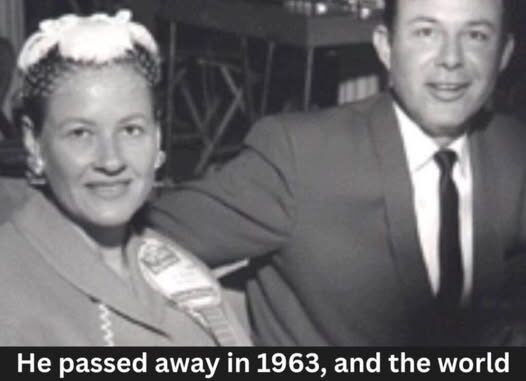
In the grand year of 1960, a remarkable event took place in the world of music. Jim Reeves introduced a song that was destined to make waves in both country and pop genres—“He’ll Have to Go.”
With its velvety smooth vocals and a rich orchestral arrangement, this track became more than just a hit; it was a bridge between two musical worlds. Reeves, with his stylish and refined charm, turned into a legend. His voice? As smooth as silk. His unique style? Suave and polished. And the song itself became a cultural treasure, securing Jim’s spot as one of Nashville’s finest artists.
The History Behind “He’ll Have to Go”
Jim Reeves was not your typical country singer. Famously known as “Gentleman Jim,” he had an extraordinary gift for blending the sophistication of country music with raw, heartfelt emotion.
Born deep in the heart of Texas, Jim initially worked as a radio announcer before he embraced music as his true calling. By the time “He’ll Have to Go” hit the airwaves, he was already a star in country music circles, but this song catapulted him into an entirely new realm of fame. It wasn’t merely the melody that resonated—it was the entire aura he brought along.
The influence of “He’ll Have to Go” extended well beyond its chart-topping numbers. It became a symbol that people from all walks of life could relate to. The heartache, the imploring pleas—it touched a universal nerve. And Jim’s rendition? A perfect fusion of surety and empathy. He didn’t need to overemphasize; his voice effortlessly carried the emotion.
With the massive triumph of the song, Jim Reeves transcended his status as a country artist and emerged as a global music icon. His tours spanned across continents, introducing new audiences to the magic of country music.
Jim’s polished sound reshaped country music, demonstrating that the genre could be both sophisticated and accessible to the masses. But make no mistake—“He’ll Have to Go” was more than just a popular track; it was a revolutionary force. It facilitated the rise of the Nashville Sound—a refined, orchestrated style of country music that appealed to broader audiences.